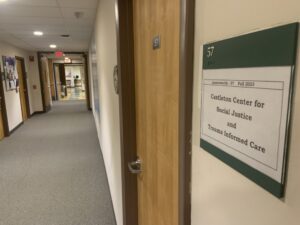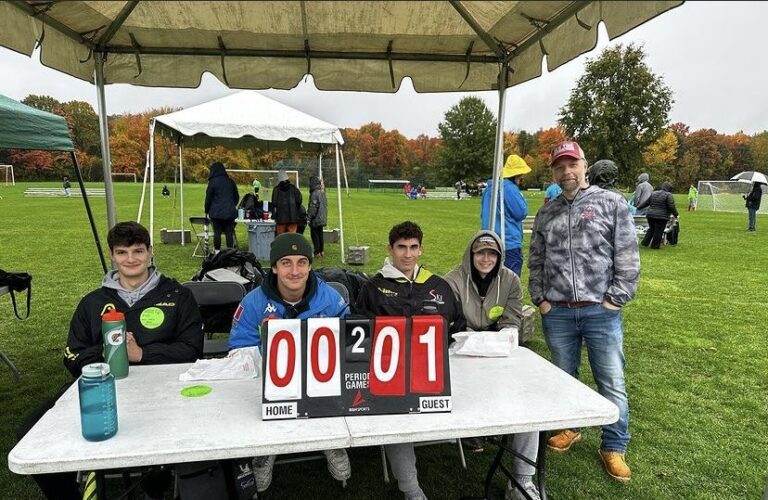Trauma center creates a healthier community

In January of 2023, Vermont State University at Castleton was given a grant to create the Castleton Center for Social Justice and Trauma Informed Care to be located in the basement of Leavenworth Hall in the former Spanish lab.
The Grant was given by The Bowse Health Trust.
Created in 1996, the Bowse Health Trust funds community-based programs with the purpose of making a healthier community. The $100,000 grant for Castleton is in effect for three years.
With this grant, the Center for Social Justice and Trauma Informed Care is able to host events, increasing influence and awareness and making the effect of this center greater.
An example of one of these events is one that happened on Oct. 24 called “Taking Back The Rail Trail.” Taking Back The Rail Trail was a gathering on the trail following the tragic shooting death of Honoree Fleming, a former academic dean, to celebrate her life as well as an effort to restore the sense of safety on Castleton campus. Events like this hosted by the center to improve wellness are for anyone who wishes to take part.
Linda Olson, a sociology professor at Castleton and one of the leaders of the Center, is enthusiastic about the grant and all the opportunities it creates.
When asked about some of the ways the center works, Olson said it’s “kind of like a lab for research” in the effort to support and help the Rutland County community need.
“Our mission and vision is grounded in the needs of the community,” Olson said.
The center acts as a headquarters for bringing about awareness for Trauma Care, and how people can help others struggling with trauma, she said.
“We teach a trauma-informed approach to dealing with others. This is the understanding that behaviors or actions could be grounded in trauma. To appreciate this is to better understand and communicate with others,” Olson said.
Their desire to help doesn’t just end in Castleton, however. Olson and others involved say they also have hopes of opening centers throughout the VTSU system.
“Other campuses could do the same thing and ground their work in the needs of the community. It might look very different from our center, but it would be designed to support and benefit the community,” Olson said.
Another professor involved in the effort is social work professor Margret Miles, who said she is enthusiastic in her effort to “infuse Mental health into the curriculum.”
Also involved is criminal justice professor Pat Brougham, who expressed the importance of student input in this center.
“We need students to be more involved,” said Brougham.
The creation of this mission and the effort to get the grant came during the struggles of COVID.
“We (Sociology, Social Work, and Criminal Justice Department) were all struggling with the weight of the pandemic while simultaneously there were a series of public movements that made structural inequality visible,” Olson said. “It also was pretty clear that certain groups, based on race, social class, age, were more vulnerable to COVID. Our department had a meeting and decided we needed to do something. After much work and conversations with our community partners, the Center was born,” Olson said.
Unfortunately, Olson said they haven’t reached the desired number of student participants. They would like students to help with tasks, like mentoring younger children and start a social media platform.
”Students are creative and savvy in ways that I am not. Their input







